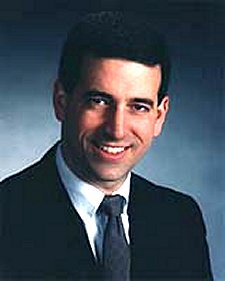Let's Not Russ Things: There are Midterms Next Year

What makes George Will palatable as a conservative is that he is not a grandstander. He is not a bible thumper and he is often capable of objective observation. (The part about Cindy Sheehan being a Republican mole may not necessarily be true in the strict sense, but the gist of what he's saying about that element and its effect may be.) He may not necessarily be part of a vanishing breed, but his kind tend to be drowned out by the O’Reilly’s, Limbaughs and Hannity’s of the ilk. This article says as much about him, although it’s about the Senator from
AS GOOD AS FEINGOLD
By GEORGE F. WILL
November 13, 2005
After winning, at the rela tively tender age of 51, a third Senate term in 2004 with 55 percent of Wisconsin's vote, five points better than John Kerry's winning percentage, and carrying 27 of the 45 Wisconsin counties that President Bush carried, Russ Feingold went to play golf — on a public course, this fastidious populist stresses — in Greenville, Ala. That town might hereafter be known as the birthplace of Feingold's epiphany.
Feingold says, implausibly, that "I don't think about it" — seeking the Democrats' 2008 presidential nomination — "very much." But he does brood about a "50-state strategy" for Democrats. He found many Alabamians with problems common to A
Well, yes. Hundreds of thousands of Alabamians always vote Democratic. John Kerry won 693,933. Al Gore, 692,611. Even George McGovern won 256,923. There are "progressives" everywhere, and in the
A good liberal — the Senate's most pure, according to the liberal A
He also favors fiscal responsibility. His office wall is adorned with a large display of the 82-point — yes, 82 — plan for reducing the deficit, a plan featured in his first Senate campaign in 1992, when Ross Perot was helpfully rampant on the subject of balanced budgets. But fiscal rectitude, a faith constantly avowed but rarely constraining, thrills few liberals — or conservatives, on current evidence.
Still, Feingold is as
Feingold beca
| |
Regarding Iraq, Feingold believes, plausibly, that opposition is growing fastest where recent Democratic presidential candidates have been weakest, in rural and small town A
Although he supported the invasion of Afghanistan, and says "the fight against terror is A
But he has a problem to his left. The anti-war move
Cindy Sheehan, surely a Republican mole toiling to make the anti-war position repulsive, starred at a Washington rally that featured exactly two speakers from Congress — including Cynthia McKinney, the Georgia Democrat who darkly hints that President Bush may have known that the 9/11 attacks were coming and welco
In 2008, the many Democratic activists who vibrate like tuning forks to such stimuli will find their Howard Dean, so


Comments